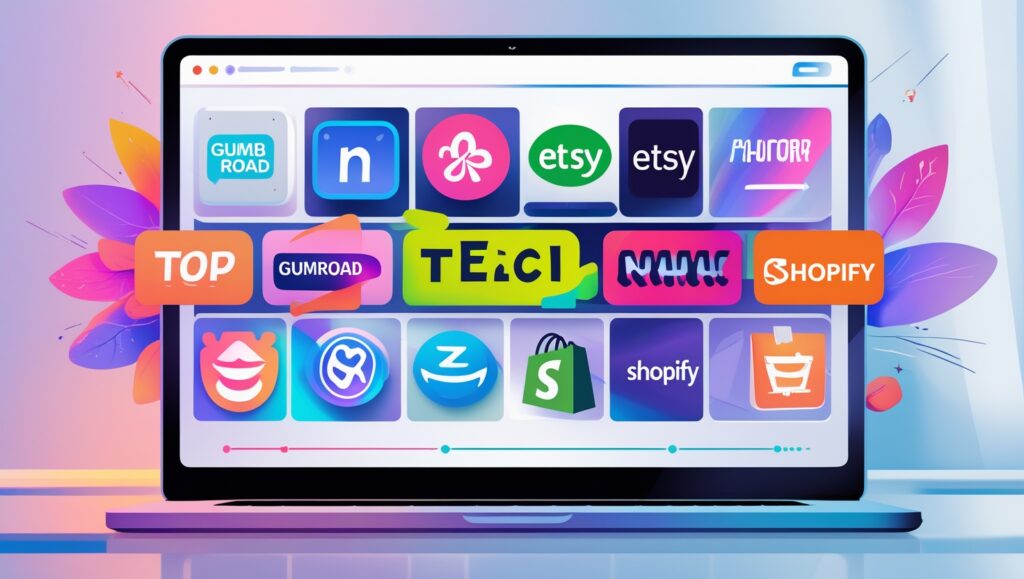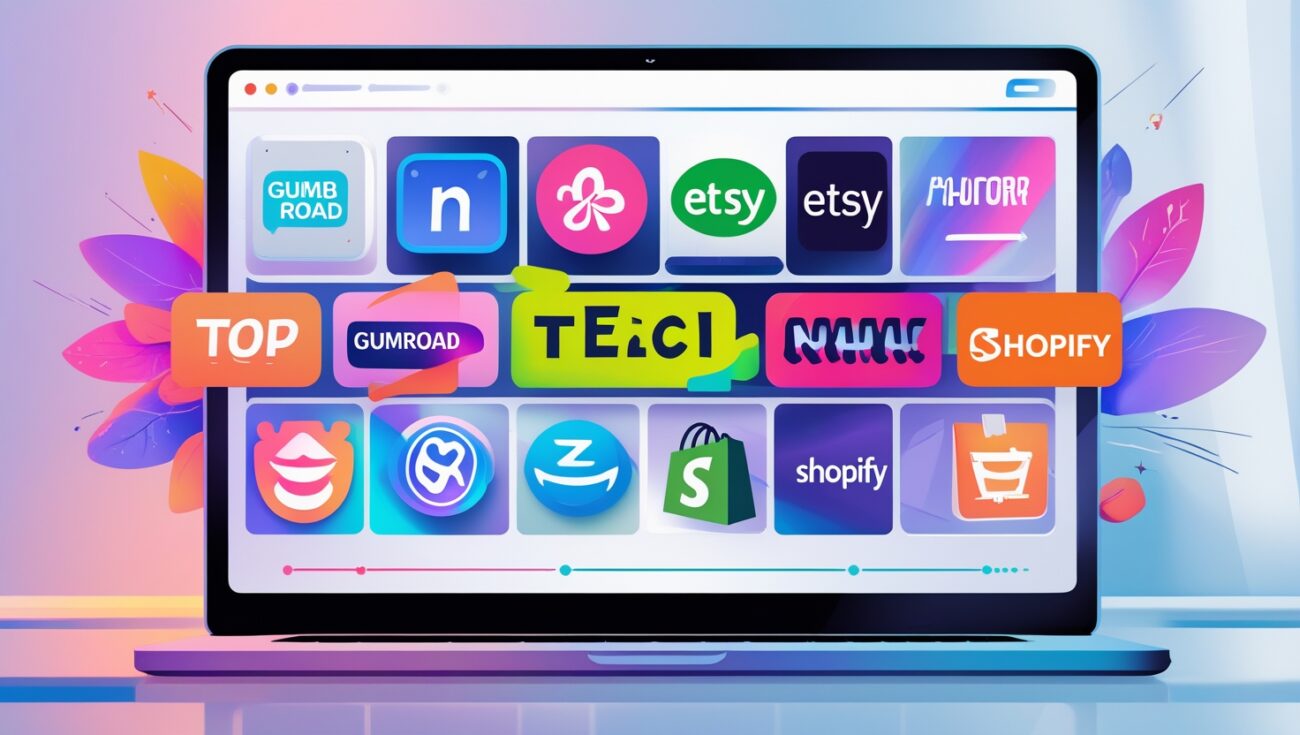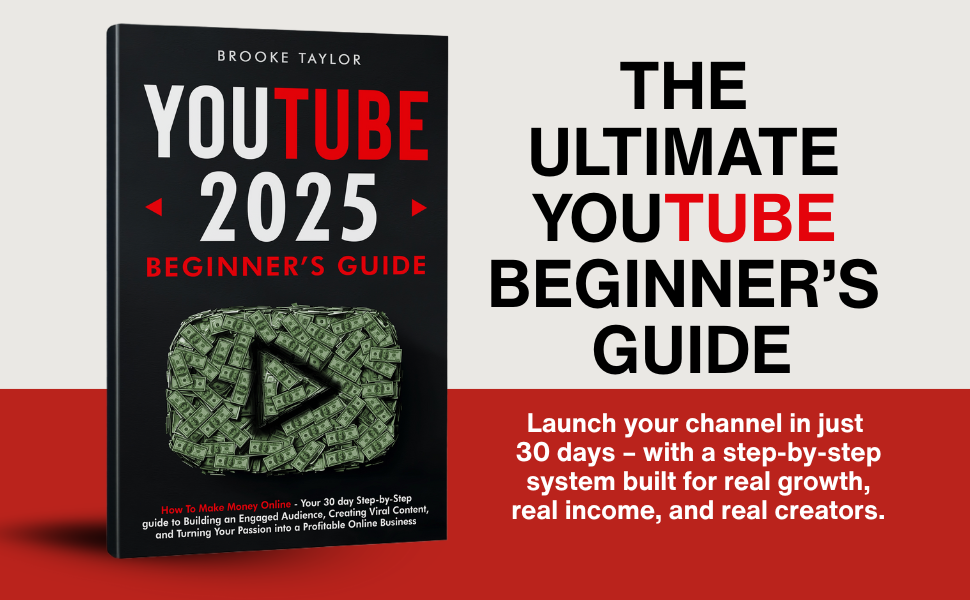Top Platforms for Selling Digital Products Without Tech Skills
When I launched my first digital product, I was overwhelmed by all the tech involved. Setting up a website, connecting payment processors, and figuring out how to deliver files felt impossible. But I learned quickly that you don’t need to be a tech expert to sell online.
In this post, I’m sharing the top platforms for selling digital products without tech skills so you can start earning income faster and with less stress.

Table of Contents
Why You Don’t Need to Be a Tech Expert
Gone are the days when you needed to hire developers or spend months building a website. Today’s platforms are designed to be user-friendly and take care of the tech for you.
This means you can focus on what you do best—creating valuable products—while the platform handles payments, delivery, and customer management.
1. Skool
Skool is my go-to platform because it combines everything in one place. You can:
- Sell courses, memberships, and communities
- Collect recurring payments automatically
- Deliver your content through a beautiful, simple dashboard
- Engage your audience with built-in community features
Skool is perfect if you want to sell your digital products and build a community without juggling multiple tools.
2. Gumroad
Gumroad is another beginner-friendly platform that makes it easy to upload and sell your products. It’s great for selling one-off items like eBooks, templates, or digital downloads.
You don’t need a website, and the setup takes just a few minutes.
3. Podia
Podia is a versatile platform that allows you to sell courses, memberships, and downloads. It includes built-in email marketing, which is helpful if you want to communicate directly with customers.
The interface is clean and easy to use, making it a good option for non-techies.
4. Payhip
Payhip is a simple solution for selling digital downloads. You can embed it on your existing site or use their store page. It also includes marketing features like discount codes and affiliate options.
5. Etsy (for Digital Downloads)
If you’re creating digital art, printables, or templates, Etsy can be a great marketplace to tap into. It already has a large audience searching for these products, so you don’t have to build your own traffic.
Which Platform Is Best for You?
If you’re serious about building a brand and recurring income, I recommend starting with Skool. It allows you to scale beyond one-off products and build a loyal audience at the same time.
Click here to create your Skool account and start selling your digital products today—no tech headaches required.
One of the best parts about these platforms is how quickly you can get started. You don’t need to worry about web hosting, coding, or complicated payment gateways. The platforms handle everything for you so you can focus on creating and marketing your products.
Another advantage is the built-in security. Many new sellers worry about how to protect their digital files. Platforms like Skool, Gumroad, and Podia automatically secure your downloads and deliver them only after payment is received, giving you peace of mind.
I also love how these platforms integrate payment processing. You don’t need to set up merchant accounts or deal with banks. Most allow you to accept payments from major credit cards and PayPal, making it easy for your customers to buy.
Another tip: look for platforms that allow you to grow. Some marketplaces work well for one-off sales, but if you want to eventually build a membership site or community, you’ll need more advanced features. That’s why I often recommend Skool because it scales with your business.
Platforms like Gumroad and Payhip are perfect if you just want to start small. You can quickly upload eBooks, templates, or downloads without much setup. As your business grows, you might decide to move to an all-in-one platform like Skool or Podia for more control.
I also recommend taking advantage of the marketing tools these platforms provide. Many include features like discount codes, affiliate programs, and upsells. These small features can dramatically increase your revenue without adding extra work.
One of the reasons Skool stands out is its ability to build community. When people buy your digital product, they also join a space where they can ask questions and engage with others. This keeps them connected to your brand and more likely to purchase from you again.
Etsy is another great choice for creators who want to tap into an existing audience. Because Etsy already has millions of users searching for digital downloads, you don’t need to drive as much traffic yourself. This can be a huge benefit if you’re just starting out.
Another tip is to choose a platform with analytics. Knowing which products are selling, where your customers are coming from, and how much you’re earning is essential to growing your business. Most of the platforms mentioned provide basic reporting to help you make informed decisions.
It’s also worth mentioning that you don’t need a big audience to succeed. Many people assume they must have thousands of followers before selling digital products. But with the right platform and a great product, you can start making sales even with a small audience.
Don’t overlook the importance of customer support. If you’re not tech-savvy, you want a platform that can help you quickly if something goes wrong. Platforms like Skool, Podia, and Gumroad have strong support teams ready to assist you.
Finally, remember that your success doesn’t depend on picking the “perfect” platform. The key is to start with one that feels simple and aligned with your goals. As your business grows, you can always upgrade or switch platforms later.
One more thing to consider is how easy it is for customers to purchase. Platforms with a clean and simple checkout process will always convert better. This is another reason I like Skool—it makes buying a frictionless experience, which means fewer abandoned carts and more sales.
I also suggest testing a few platforms if you’re unsure which one fits your needs. Most of them offer free trials or low-cost plans so you can see what the interface feels like before committing long term.
Lastly, remember that the platform you choose should match the type of digital product you’re selling. For example, if you’re focusing on memberships and communities, Skool is a clear winner. If you’re selling eBooks or templates, Gumroad or Payhip might be the simplest starting point.







Saved as a favorite, I really like your blog!